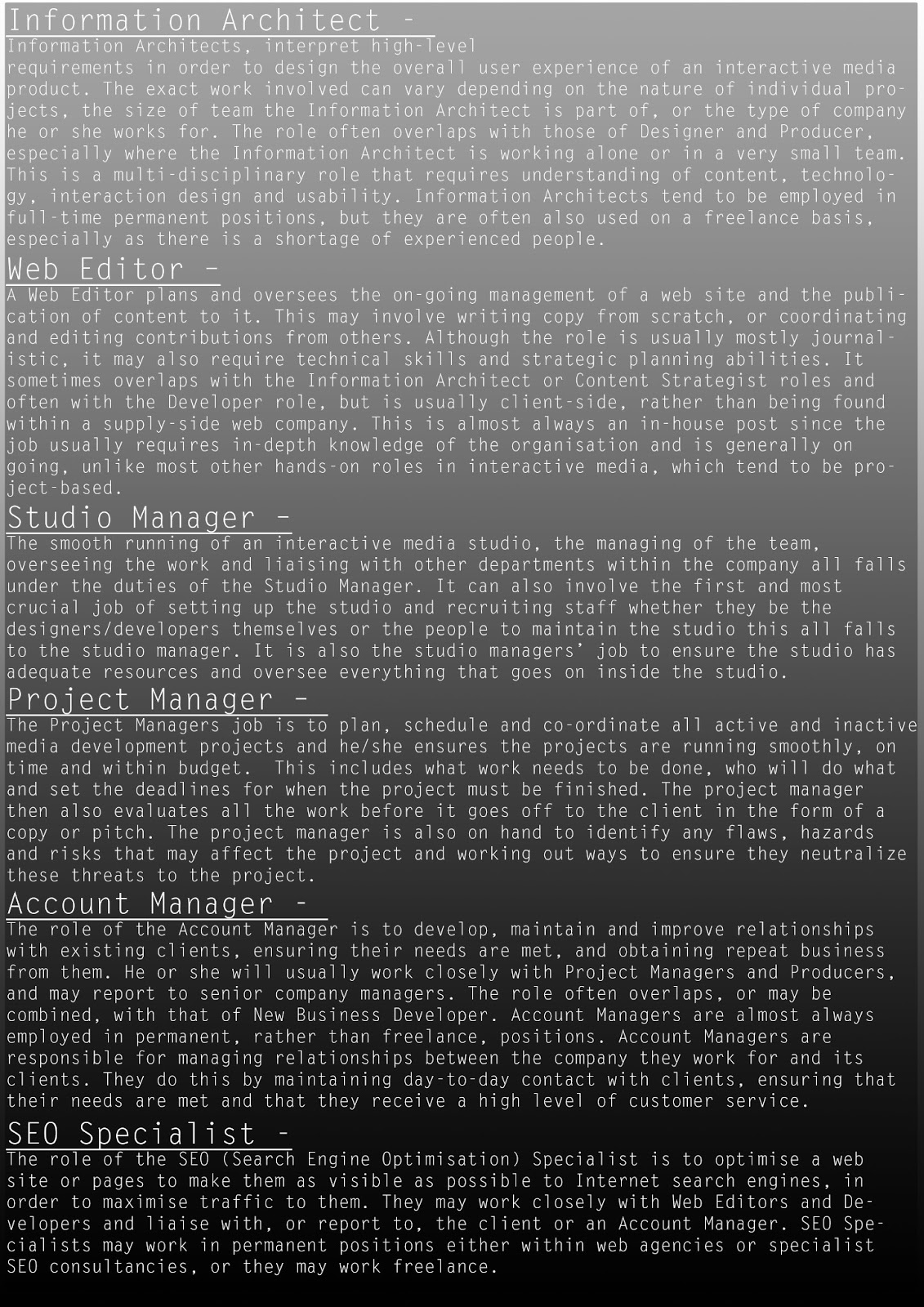Personal Career Development Material
In the
Interactive Media Industry there are many different jobs and roles out there
and all are crucial to the business. The jobs themselves have to be earned via
use of the skill for instance a company like Nike need a new reworked logo and
due to the scale of the company they aren’t going to take on just some kid who
knows how to use Photoshop. They will want someone with experience who has
worked in the same field before and can show for their work. So rather than
just a list of places and jobs they have done on their Curriculum Vitae they
are going to have to see examples so photos that they had made for other
clients completed and published can be shown and evaluated so the client is
sure of who they are hiring and how they will perform. The best means of doing
this is to make a Portfolio whether that is a video portfolio or a folder
collection of your work.
In many
cases the work shall speak for itself but otherwise you shall as expected,
attend an interview like any other prospective employee wearing formal dress,
shake the client firmly by the hand and above maintain eye contact when
speaking. Usually during the interview the client will brief you on what they
want you to do for the project for instance if you are a Graphic Designer they
would tell you what sort of graphic they are after and the look, feel and
features of it, or if you are a Web Designer the pages, structure and content
that is to be featured. Usually you can suggest own ideas in an informal manner
but once contracted you are available for that job in hand down to the last
client specification.



